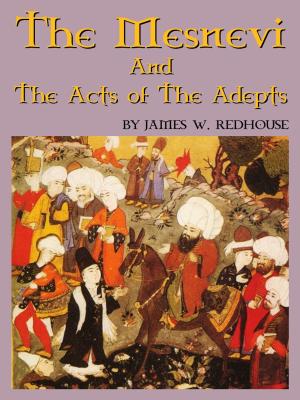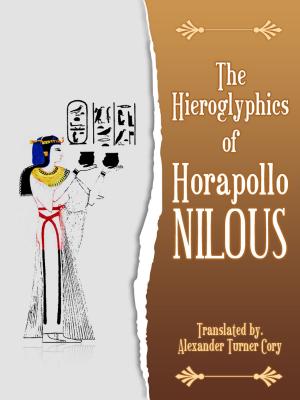Select Works Of Sri Sankaracharya
Nonfiction, Religion & Spirituality, Eastern Religions, Hinduism, Inspiration & Meditation, Inspirational, Spirituality| Author: | S. Venkataramanan | ISBN: | 1230000036806 |
| Publisher: | AppsPublisher | Publication: | December 5, 2012 |
| Imprint: | Language: | English |
| Author: | S. Venkataramanan |
| ISBN: | 1230000036806 |
| Publisher: | AppsPublisher |
| Publication: | December 5, 2012 |
| Imprint: | |
| Language: | English |
Select Works of Sri Sankaracharya
tr. by S. Venkataramanan
Shankara, an Indian philosopher, probably lived in the 8th century CE. He taught the unity of the soul and God, the 'Advaita' (non-dualistic) branch of Vedanta Hinduism.
THE main object of this publication is to present, in simple English, some of the works of Sri Sankaracharya in which he tried to expound, in a popular style, the philosophy of the non-dualistic Vedanta of which he was the well-known founder. With this view the present translation has been rendered free of technical words and phrases, and, in some instances, literal and technical accuracy has been purposely sacrificed in order to make the translation readable and comprehensible by itself independently of the text. It is however hoped that the juxtaposition of the Samskrit text and the English translation will serve the double object of enabling the student of Sanskrit to understand the text better and to correct, by a reference to the text, any defect of expression in the translation as an inevitable result of the attempt to garb it in a popular style. To those that have had no training in metaphysics or dialectics and have neither the leisure nor the capacity to read the original standard works of Sankara,--mostly elaborate commentaries on the Vedanta aphorisms, the Bhagavad-gita and the Upanishads--a publication of this kind should be specially helpful for a proper understanding of the broad outline of Sankara's philosophy of non-dualism.
Select Works of Sri Sankaracharya
tr. by S. Venkataramanan
Shankara, an Indian philosopher, probably lived in the 8th century CE. He taught the unity of the soul and God, the 'Advaita' (non-dualistic) branch of Vedanta Hinduism.
THE main object of this publication is to present, in simple English, some of the works of Sri Sankaracharya in which he tried to expound, in a popular style, the philosophy of the non-dualistic Vedanta of which he was the well-known founder. With this view the present translation has been rendered free of technical words and phrases, and, in some instances, literal and technical accuracy has been purposely sacrificed in order to make the translation readable and comprehensible by itself independently of the text. It is however hoped that the juxtaposition of the Samskrit text and the English translation will serve the double object of enabling the student of Sanskrit to understand the text better and to correct, by a reference to the text, any defect of expression in the translation as an inevitable result of the attempt to garb it in a popular style. To those that have had no training in metaphysics or dialectics and have neither the leisure nor the capacity to read the original standard works of Sankara,--mostly elaborate commentaries on the Vedanta aphorisms, the Bhagavad-gita and the Upanishads--a publication of this kind should be specially helpful for a proper understanding of the broad outline of Sankara's philosophy of non-dualism.















